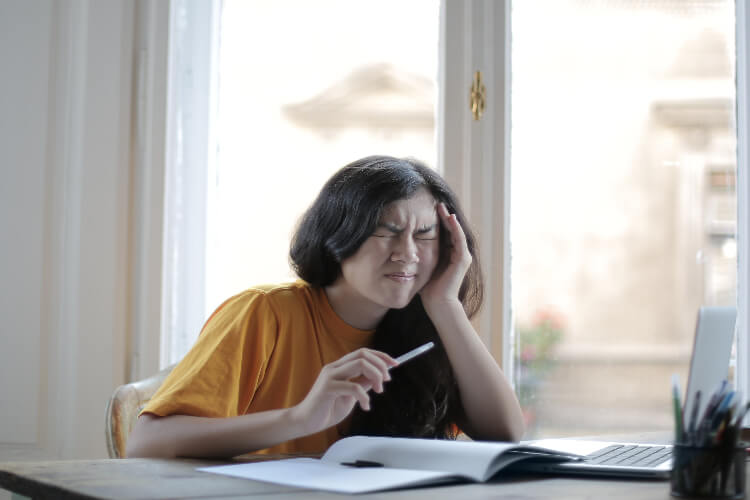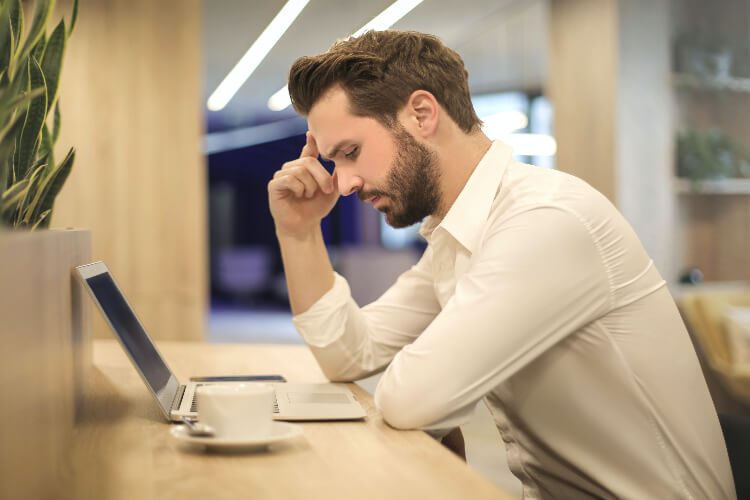
Why does coffee give me a headache?
Caffeine is one of the most popular drugs in the world. So why does coffee give me a headache when I drink it? Caffeine is a stimulant that will make your brain feel more alert and engaged. But this can also lead to dehydration because drinking coffee triggers your body to release a hormone called vasopressin (also known as an anti-diuretic hormone) which makes your kidneys retain less water. This means drinking too much coffee will leave you feeling dehydrated and with a headache!
Why Does Coffee Give You A Headache?
There are a few possible reasons why coffee may give you a headache. One is the potential for coffee’s caffeine to constrict blood vessels or cause vasoconstriction. This can lead to headaches because it decreases blood flow to the brain.
- Caffeine can also increase anxiety and stress levels, contributing to headaches. Another possibility is that coffee is acidic and that acidity can trigger headaches in some people. If you’re prone to headaches, it’s worth trying to cut back on coffee or switch to a decaf variety to see if that makes a difference.
- We all know that feeling: you wake up after a long night, Reach for a cup of coffee, and BAM! A headache hits you like a ton of bricks. Why does this happen?
Well, it turns out that there are several reasons why coffee can give you a headache. For one, coffee is acidic and can irritate the lining of your stomach. This can lead to headaches as well as other gastrointestinal issues.

Another reason has to do with caffeine withdrawal. If you’re someone who regularly drinks coffee, you may be used to the effects of caffeine. But if you suddenly stop drinking coffee or reduce your intake, your body can go into withdrawal, which can cause headaches.
- Finally, some people are just sensitive to caffeine and may get headaches from even small amounts of coffee. If this is the case, it’s best to avoid coffee altogether.
- If you’re getting headaches from drinking coffee, there are a few things you can do to try and mitigate the issue. First, try switching to decaf coffee or tea. This will help reduce the amount of caffeine you’re consuming without giving up your favorite beverage entirely.
You can also try adding milk.
Caffeine, Analgesics, and Headaches
- If you’re a coffee drinker, you may have experienced the occasional headache after drinking too much caffeine. But why does coffee give you a headache?
- Caffeine is a stimulant that can cause your blood vessels to constrict. This can lead to headaches and other symptoms like anxiety and jitteriness.
- Analgesics like ibuprofen or acetaminophen can also cause headaches if you drink coffee while taking them. The combination of the two can lead to an increased risk of headaches.

If you’re prone to headaches, limiting your caffeine intake is best. And if you drink coffee, take it slowly and quickly to avoid unwanted side effects.
Ways to Prevent a Coffee Headache
Coffee is a morning ritual for many people, but it can also be a source of headaches. If you’re one of the unlucky few who gets a headache from coffee, there are a few things you can do to try to prevent it.
First, make sure you’re not using too much coffee. A small cup should be enough to boost without giving you a headache. If you need more caffeine, try switching to tea instead.
- Second, pay attention to the quality of your coffee. If you usually drink instant coffee, try upgrading to better-quality beans. The same goes for pre-ground coffee – it’s often stale and can cause headaches. Investing in a good coffee grinder will make a big difference in the taste and quality of your coffee.
- Finally, don’t drink coffee on an empty stomach. Eating something before you consume it will help avoid the headaches caused by caffeine on an empty stomach.
- If you’re someone who gets headaches after drinking coffee, you’re not alone. Caffeine headaches are a common complaint; unfortunately, they can be tough to eliminate. But don’t despair! There are some things you can do to help prevent them.
- First, it’s important to remember that everyone’s body responds to caffeine differently. So, what works for one person may not work for another. Just because your friend can drink four cups of coffee with no problem doesn’t mean you can. Start by paying attention to how your body feels after drinking coffee. If you notice that you tend to get a headache, try reducing your drink amount.
- Another helpful tip is to make sure you’re drinking quality coffee. Cheap, low-quality beans can sometimes contain impurities that can trigger headaches. So, spending a little extra on good-quality beans is worth it.
Finally, if you still get headaches even when you’re being careful about how much coffee you drink and the quality of the beans, some over-the-counter medications can help. Talk to your doctor or pharmacist about which one might be right for you.
Conclusion
If you find that coffee gives you a headache, it’s essential to experiment with different brewing methods and bean varieties to find what works best for you.
Some people may also need to reduce their caffeine intake or switch to decaffeinated coffee. Don’t give up on coffee altogether — there are ways to enjoy it without the headache.
